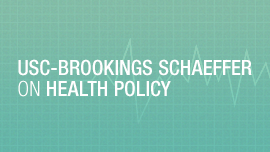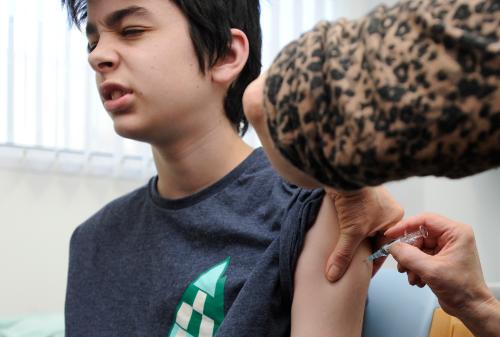The ongoing national debate about vaccines and their alleged connection to autism flares up every so often, much as it did a few weeks ago following the latest GOP debate. Fear over the side effects of vaccines and suspicion of public health campaigns that promote them is not a new phenomenon. In fact, vaccines have been controversial since they were first developed back in the 18th century (for readers interested in this topic, Arthur Allen’s book “Vaccine: The Controversial Story of Medicine’s Greatest Lifesaver” provides an excellent history on the subject). Their alleged connection to autism is more recent, dating largely from the 1998 publication of a Lancet article that claimed to have found a link between the measles-mumps-rubella vaccine and autism. The study—which was based on findings from 12 children—was later thoroughly discredited and retracted, and its principal author lost his medical license due to allegations of serious medical misconduct. But the idea that vaccines might contribute in some way to autism lives on, despite study after study after study failing to find a link.
Our colleague Kavita Patel did an excellent job of summarizing why widespread vaccination is absolutely critical to protecting public health, so we won’t spend more time doing so here. We would like to comment on Michael O’Hanlon’s recent piece; he very movingly outlined why some parents continue to be nervous about vaccinating their children, despite the fact that the benefits of vaccination far outweigh the risks for the vast majority of children. We are very sympathetic to these concerns, and agree that the health care and the public health community have not done a good enough job of educating and reassuring cautious parents. The effects of this failure are clear—in recent years we’ve seen increased outbreaks of easily preventable childhood diseases, particularly measles and pertussis. These outbreaks have been attributed to falling vaccination rates in communities of people who refuse or delay vaccination out of fear and misinformation.
However, while the problem is clear, implementing an official policy of ‘spacing’ vaccinations more broadly for those parents who request it is not the solution. To our knowledge, this approach—which was first publicized in 2007 by a California pediatrician named Robert Spears—has not been scientifically evaluated for safety or efficacy. By contrast, the recommended vaccination schedule is supported by substantial research, and a recent major review by the Institute of Medicine found no major safety concerns associated with adherence to it.
While there is no evidence to demonstrate that spacing vaccines is beneficial, there is data demonstrating that delaying vaccination can actually cause harm. A 2013 study of more than 800,000 children found that those who receive their measles vaccination at the recommended age (12-15 months) have a lower risk of negative side effects than those who receive it later. Aside from the risks of the vaccines themselves (which again are very low compared to the risks of the diseases they prevent), delaying or spacing out vaccines also leaves children vulnerable to dangerous diseases for longer than is necessary, and raises the chance that the child will remain ‘undervaccinated’ (that is, receiving less than the recommended doses of a vaccine). Another recent study found that children aged 3 months to 3 years who missed shots or received the shots late were up to 28 times more likely to be diagnosed with pertussis (whooping cough), a disease which causes such uncontrollable and violent coughing that in some cases a child may vomit or even break their own ribs. Limiting the number of visits that children must make to the doctor also makes it easier for families to complete the full course, limits the chances that children will be exposed to other sick children (who tend to congregate in places like waiting rooms), and reduces the overall costs of vaccination.
The role of public health and health care policymakers is to develop and promote evidence-based policies. Best practices and recommendations for the vaccination schedule may change over time as more research is done, but what we need in the meantime are better strategies for educating and convincing hesitant parents to accept the current vaccine schedule. Parents are of course free to make the decision they feel is best, in consultation with their doctor, and there are no federal or state laws that compel parents to adhere to official guidelines. However, it is important for health care professionals and policymakers to respectfully—but firmly—push back against misleading messages about vaccine safety, rather than endorse compromises that may cause more harm than good.
The Brookings Institution is committed to quality, independence, and impact.
We are supported by a diverse array of funders. In line with our values and policies, each Brookings publication represents the sole views of its author(s).







Commentary
Vaccines and nervous parents: Why spacing out the vaccine schedule is not the answer
October 26, 2015